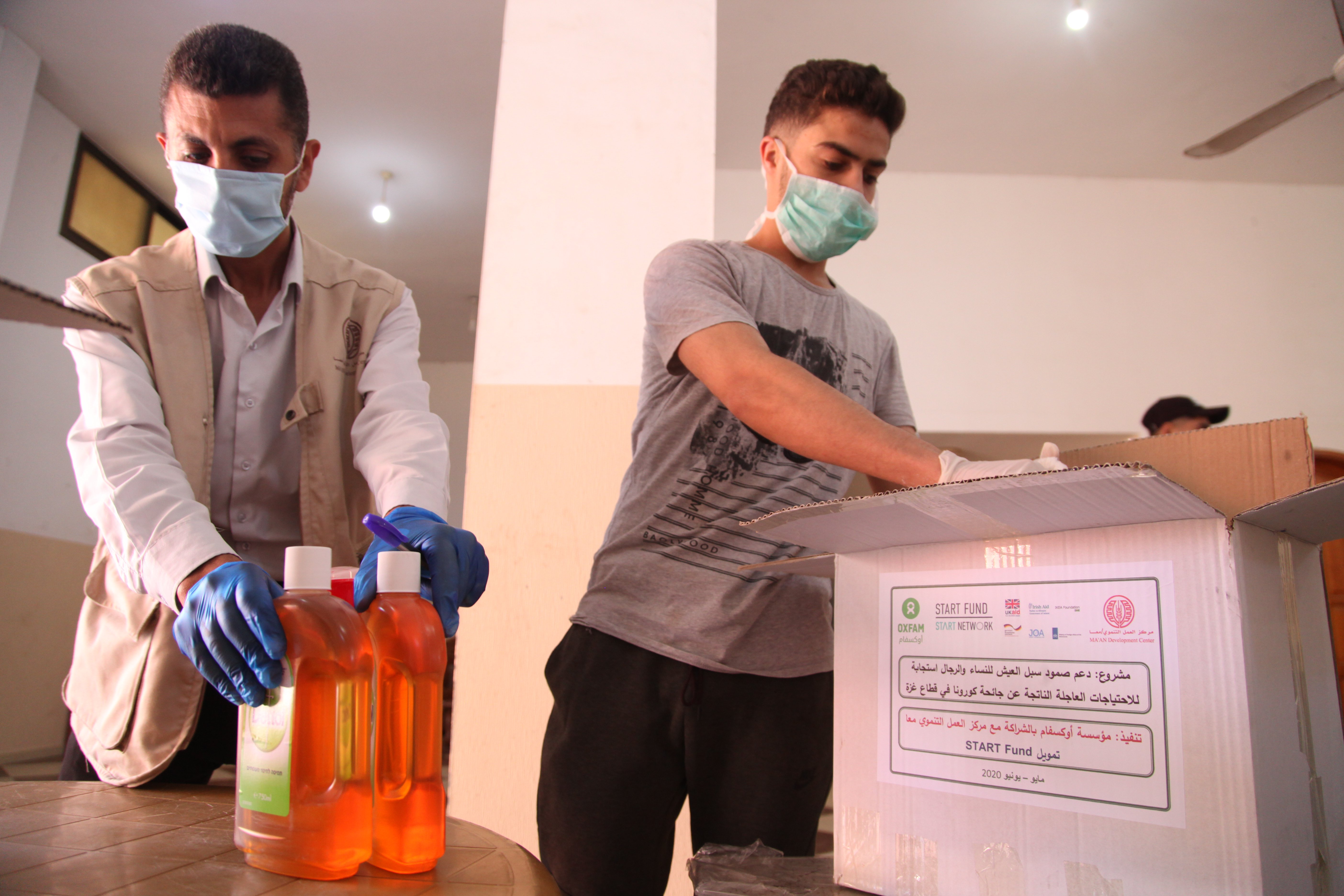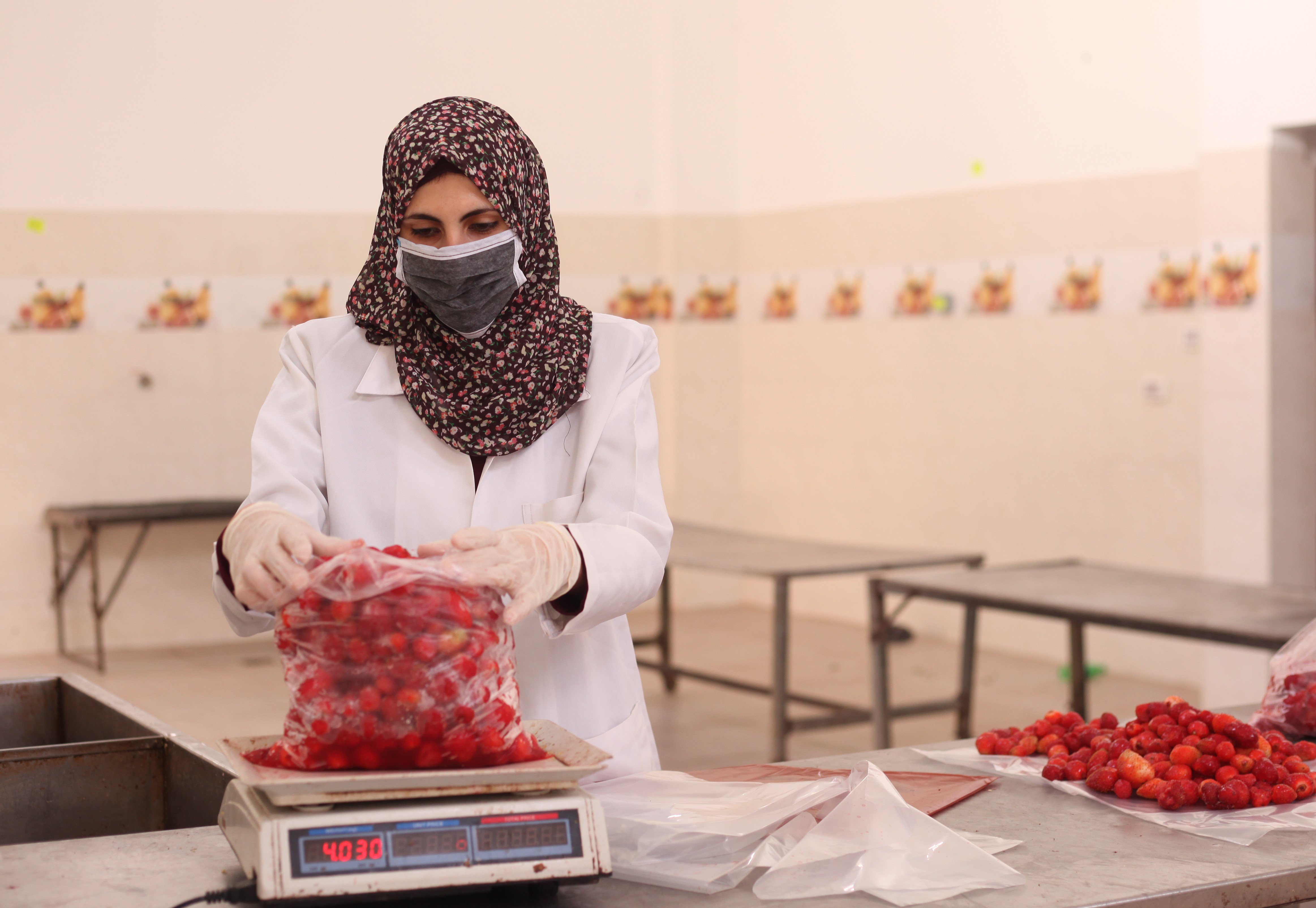Oxfam and our partner Ma’an Development Centre help food packing businesses and their employees get back to work.
Fawziyah* is a fearless entrepreneur. She started her food packaging business in 2014 in the southern part of the Gaza Strip when both she and her husband were unemployed. Fawziyah took a leap of faith, combining it with hard work and a no-nonsense approach to managing their family budget.
“I manage the finances at home, and I am quite a dictator when it comes to household expenses,” she says. “I am a mother of four children and have no other source of income. My husband is unemployed, our house is a rental, and we have many other financial commitments.”
The COVID-19 pandemic added to the pressure on her business and family. “It was especially difficult in March when the first cases were detected in Palestine,” she says. “I thought we were going to grind to a complete stop, but I was resolute and took all possible precautions and continued work to keep generating income.”

Fawziyah was able to keep her business running, thanks to support from Oxfam and its partner Ma’an Development Centre, which are providing cash to cooperatives that pack, process, and freeze agricultural products produced in Gaza for restaurants and supermarkets. They also provide personal protective equipment—such as gloves and masks—as well as soap and other hygiene products to help businesses keep their workspaces clean.
Pandemic in Gaza
“Gaza has been enduring a longstanding, suffocating blockade. Infrastructure is dilapidated, there is poor access to water and sewage, and the health system in Gaza is ill-equipped to face the coronavirus pandemic,” says Kamil, who works for Ma’an Development Centre. Its objective, he says, “is to provide urgent assistance to men and women to help them overcome this crisis with the least possible impact on their personal income, and to provide them with food security.”
In addition to helping food-packing cooperatives and other small, women-led businesses with cash, Kamil says the project also helps women experiencing violence.

Altogether, he estimates 250 individuals, 130 people working at 12 cooperatives, and 120 others including 77 survivors of domestic violence have been involved. The project Ma’an Development Centre carried out with Oxfam is part of a larger response to COVID-19 that is directly helping 4,500 people and directing health and hygiene messages to 800,000 people in Gaza and the West Bank.
People need projects like this in Gaza. The pandemic has pushed an already struggling economy into further trouble, as lockdowns and unemployment mean more than 53 percent of the population lives in poverty, and 67 percent of the people are experiencing moderate to severe food insecurity.
Back to work
Raeda, 24, works at a cooperative that packs, freezes, and ships strawberries to restaurants and hotels. “Due to the lockdown in early March because of coronavirus, all hotels and restaurants had shut down. They are the income source for the [cooperative] so the owner had to lay us off,” Raeda explains through her face mask. Now back at work, she was busy weighing strawberries.

“Oxfam support is of great help… Covering our wages for 20 days allowed the business owner to buy the strawberry produce from the farmers for freezing,” she says. “This assistance helped a lot to get us back to work after more than two months with zero income.”
Work is crucial for Raeda, the mother of an infant son. She is a trained nurse unable to afford to take the certification exam needed to qualify for a job at a medical facility — even if she could find such a post. “My husband is a university graduate unable to find a job,” she says. “My job is the soul of the family.”
*People in this story requested Oxfam use first names only.
